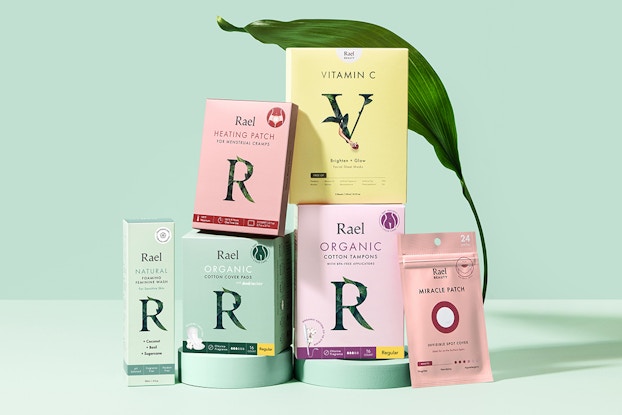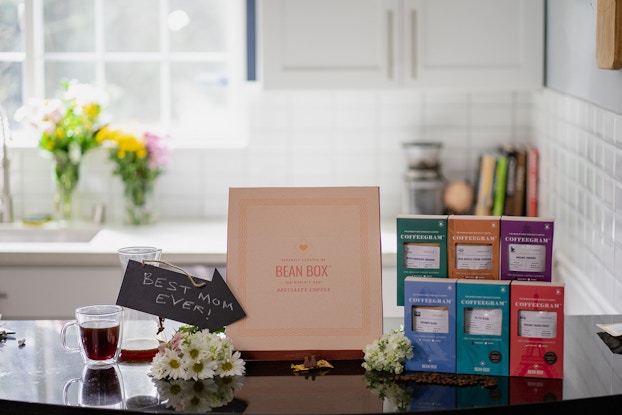Three key components for customer acquisition:
- Identify your company’s unique value proposition and ensure that it is being communicated clearly at every touchpoint: social media offers new brands a low-overhead opportunity to connect with new customers, for example, while more established brands can benefit from shelf space at mass market.
- Figure out where your potential customers are and meet them there, whether brick and mortar or online. Even interactions in non-retail spaces like hospitality can generate brand awareness that eventually translates to sales.
- Think long term and foster loyalty by consistently meeting or exceeding customer expectations. Customer acquisition growth is much more valuable when it’s achieved alongside customer retention.
Consumers are savvier and have more options than ever. Startups from personal care and home cleaning brand Public Goods to sustainable apparel business Girlfriend Collective are looking to a variety of strategies to catch their attention and create meaningful brand-customer relationships, founders told CO— in its ongoing series on how buzzy startups drive scale.
Here’s how six founders and executives have achieved growth in the face of changing consumer expectations, unpredictable market forces, and ever-intensifying competition.

Public Goods: Investing in multiple channels to build consumer awareness
Chris Breen, Head of Partnerships
Sustainable home goods and personal care brand Public Goods launched as a subscription-based platform in 2015. Since, it has successfully leaned on business-to-business relationships with complementary partners such as hotel chains and restaurants to put its products in front of potential new customers.
As a result, “60% of our revenue last year came from hospitality partners,” Head of Partnerships Chris Breen told CO—. “The beauty is that these brand partnerships not only drive revenue, but also drive brand awareness.”
[Read more: 3 Scaling Startups Each Share Their Playbook for B2B Growth]

Rael: Working with wholesale partners that can help tell the brand’s story
Yanghee Paik, Co-founder and CEO
Since its founding in 2017, period and personal care brand Rael has successfully expanded beyond DTC and Amazon to the shelves of major retailers like Target, CVS, and Walmart. To stand out and ensure Rael’s value proposition is being communicated effectively while scaling, the brand reworked its packaging and adjusted product to a more competitive price point.
While we enjoyed building a direct relationship with our customers through DTC, we knew that the customer acquisition cost for DTC is very high and retail partnerships were essential in order for us to reach the mass market. Our revenue has grown nearly eight times over the past three years after partnering with retailers.Yanghee Paik, Co-founder and CEO, Rael
“While we enjoyed building a direct relationship with our customers through DTC, we knew that the customer acquisition cost for DTC is very high and retail partnerships were essential in order for us to reach the mass market,” said Paik. “Our revenue has grown nearly eight times over the past three years after partnering with retailers.”
[Read more: How 3 Startups Stay True to Their Roots While Expanding Into Mass Market Retailers]

Branch Basics: Leveraging Instagram to convert followers into customers
Tim Murphy, CEO
In today’s brand building playbook, a great social media presence is table stakes. For a brand like Branch Basics, which sells sustainable cleaning products and does most of its business selling direct-to-consumer online, converting that social audience into paying customers is essential.
“Instagram was a natural extension to our digitally native brand from the get-go and has only increased in relevancy year over year,” CEO Tim Murphy told CO—. “Influencer marketing has helped us more than double revenue for the last few years, and the ROI [return on investment] is anywhere from two to five times [the cost].”
[Read more: 3 Sustainable Startups Reveal Their Biggest Growth Drivers]

Bean Box: Staying agile enough to get ahead of future disruption
Matthew Berk, Co-founder and CEO
In the consumer-packaged goods space, a new brand can only win over as many new customers as it has product to sell. Given the complexity of today’s global supply chains, many startups like coffee subscription business Bean Box are getting creative to ensure their product can get into the hands of as many new customers as possible.
“We tripled the size of our facility so that during peak demand season in both 2020 and 2021 we could operate as safely and efficiently as possible,” Berk said, detailing the addition of automation to further optimize warehouse operations. “Based on these decisions, we’re happy to see that our direct channel, e-commerce, and subscriptions grew 62% year over year in 2021.”
[Read more: 3 Startups on a Pandemic Decision That Proved Critical to Long-Term Success]

Girlfriend Collective: Prioritizing long-term loyalty over short-term gains
Fanny Damiette, former Chief Marketing Officer
For a value-based organization like sustainable activewear brand Girlfriend Collective, business growth must often be balanced with social impact. Winning over customers requires investment in both product quality and brand mission and continuing to deliver on it year after year.
“Understanding why we are in business and keeping our eye on the bigger picture is key in keeping our mission alive and our purpose real,” Damiette told CO—. “This means making decisions that might put us at a disadvantage regarding our competitors, but we believe in making choices for the long term, not for short-term gains.”

Windmill: Differentiating from the crowd online — and scaling — via a varied distribution strategy
Mike Mayer, Founder and CEO
No matter where they are shopping or what they are shopping for, customers want products to be accessible. Air conditioner startup Windmill originally stood out with its millennial-friendly design and online branding. To pursue scale and compete with bigger brands in the category, however, the brand had to get into the retailers where many consumers were already shopping for items like air conditioning units, including Home Depot and Wayfair.
“The DTC, online-only experience is losing its luster,” Mayer said. “To really get your products out there, you need to have range and a varied distribution strategy. Having retail partnerships locked in before peak season allowed us to plan inventory in a more reliable way, and ultimately scale much more quickly.”
[Read more: How 3 Startups Achieved Exponential Growth During the Pandemic]
CO— aims to bring you inspiration from leading respected experts. However, before making any business decision, you should consult a professional who can advise you based on your individual situation.
CO—is committed to helping you start, run and grow your small business. Learn more about the benefits of small business membership in the U.S. Chamber of Commerce, here.

What can membership do for your business?
Gain tools to stay informed, competitive, and connected by becoming a U.S. Chamber of Commerce member. Membership gives you direct access to expert policy insights, economic updates, and exclusive resources designed to help your business thrive. From behind-the-scenes analysis from D.C. to exclusive discounts and expert support, U.S. Chamber membership helps you navigate change and seize new opportunities.




